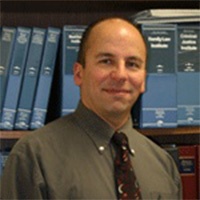Clarissa Estate Lawyer, Minnesota
Sponsored Law Firm
-
 x
x

Click For More Info:
-
Morris Law Group PA
7380 France Ave S. Suite 250 Edina, MN 55435» view mapAccident & Injury Law We Are Experts In What We Do
Whether it’s your home or business, you are important to us. Reach out today to set up a meeting with one of our experienced Edina lawyers.
800-872-9610
Edward R Shaw
✓ VERIFIEDDivorce & Family Law, Criminal, Real Estate, Estate, Bankruptcy & Debt
The Law Office of Attorney Edward R. Shaw is located in Brainerd, Minnesota and has been serving the Brainerd Lakes Area and surrounding counties with... (more)
Allen J. Peterson
✓ VERIFIEDCriminal, Divorce & Family Law, Traffic, Estate Planning, Wills
Minnesota Native Allen J. Peterson is a 2017 graduate of the University of St. Thomas – School of Law. Allen was born September 24, 1991 in Dakota C... (more)
Karen Hoffman
Commercial Real Estate, Mediation, Wills & Probate, Estate, Family Law
Status: In Good Standing
Timothy J Pederson
Real Estate, Personal Injury, Family Law, Trusts
Status: In Good Standing Licensed: 43 Years
Peter L Vogel
Estate Planning, Consumer Bankruptcy, Commercial Real Estate, Social Security -- Disability, Trusts
Status: In Good Standing Licensed: 46 Years
Ed Hellekson
Estate Planning, Living Wills, Business, Corporate
Status: In Good Standing Licensed: 30 Years
FREE CONSULTATION
CONTACTTerry A Karkela
Real Estate, Trusts, Workers' Compensation, Corporate
Status: In Good Standing Licensed: 44 Years
 Richard Morris Edina, MN
Richard Morris Edina, MN Practice AreasExpertise
Practice AreasExpertise


